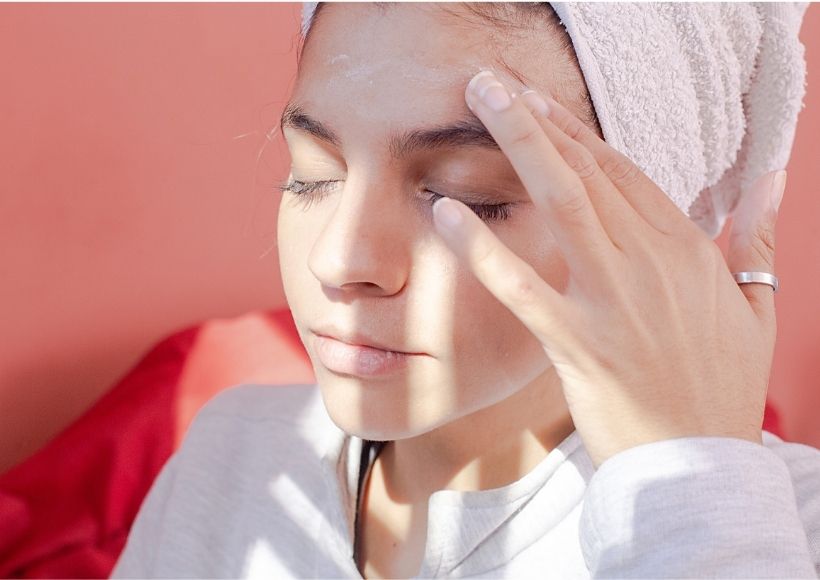Dry skin,the end of the rains, the rise in temperatures and the intensity of the sun put our skin’s ability to adapt to the test. Although cleaning and hydration routines must be maintained in all seasons, there are recommendations aimed at compensating for the lack of humidity in the environment and improving the condition of the driest and most reactive skin.
As noted on the website of the American Academy of Dermatology, without a change in skin care, drier air can produce more visible fine lines and wrinkles. Dry skin can cause itching, peeling, cracking, and even bleeding. To help care for dry skin, keep it healthy, and prevent it from worsening, American dermatologists recommend the following:
Table of Contents
1. Avoiding Baths And Showers Makes Dry Skin Worse
When your skin is dry, be sure to follow some simple tips in the bathroom: close the door while showering or bathing; limit the time in the shower or bath to 5-10 minutes; use hot water instead of hot water; use a mild, fragrance-free cleanser; apply enough detergent to remove dirt and grease but avoid using so much as to form a thick foam; dry the skin gently with a towel; and use abundant cream after drying the skin.
2. Apply moisturizer immediately after each wash.
Moisturizing balms, creams and lotions work by trapping existing moisture on the skin. To retain all this necessary moisture, hydro smoothing cream must be applied a few minutes after drying off after a shower or bath or after cleaning the face or hands.
3. Use A Conditioner Or Cream Better Than A Lotion
Balms and creams are more effective and less irritating than lotions. Look for a cream or conditioner that contains an oil like olive or jojoba. Shea butter works well too, and there are other ingredients that can help soothe dry skin, such as lactic acid, urea, hyaluronic acid, dimethicone, glycerin, lanolin, lanolin, lanolin, lanolin. mineral oil and petroleum jelly. Carry non-greasy hand cream with you and apply it every time you wash your hands, which will greatly alleviate your dryness.
4. Use Lip Balm
Choose a lip balm that you like but be aware that some with treatment components can irritate them. If your lips itch or tingle after applying the balm, change to another that does not produce such a reaction.
5. Use Only Delicate, Fragrance-Free Products
Some skin products are too harsh on dry and sensitive skin. When your skin is dry, you should stop using deodorant soaps and products that contain alcohol, perfumes, retinoids, or alpha hydroxy acids. Avoiding these products will help the skin retain its natural oil.
6. Put on the gloves
Our hands are often the first place we notice dry skin. The condition of the skin can be improved by wearing gloves. Be sure to wear gloves before: going outside in winter, performing tasks that require wet hands, and when handling chemicals, greases, and other substances.
7. Choose Non Irritating Clothes And Laundry Detergent
When we have dry and sensitive skin, even the clothes and the detergent used to wash them can cause irritation. To avoid this use cotton or silk under clothing made of wool or other rough material. Use a soap labeled hypoallergenic to wash clothes.
8. Stay Warm Without Getting Too Close To Heat Sources
Sitting in front of an open fireplace or heater can be very drying to your skin.
9. Add Moisture To The Air
Use a humidifier. Check if your HVAC system has a built-in humidifier and if so, make sure it works and keep it on.
10. When To Go To The Dermatologist
With all these tips your skin should improve quickly. If these changes do not bring relief, see a dermatologist. Very dry skin requires the prescription of a balm or cream. It can also be a sign of a skin disorder that needs treatment. A dermatologist will examine your skin and explain how to reduce your discomfort.
Also Read : Five Natural Acne Treatment

